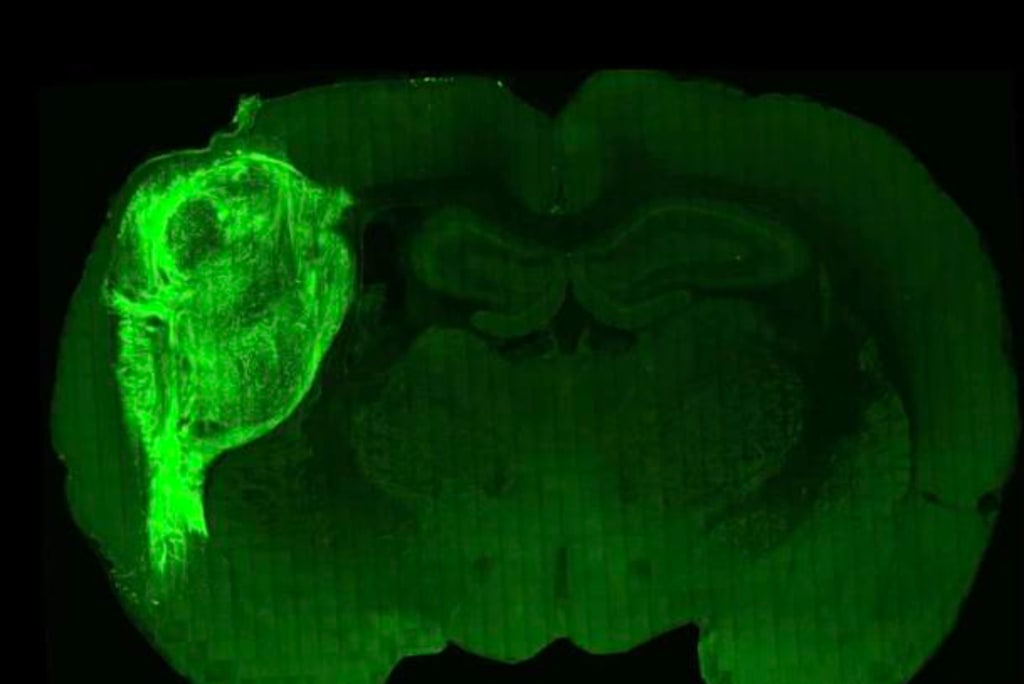What are the implications of the discovery that human brain organoid cells were first implanted in the brains of young rats, demonstrating that implanted human neurons can influence the behavior of animals?
This groundbreaking work means that scientists can now model the pathogenic mechanisms of brain cells from patients with mental illness in the living brain

Researchers have transplanted human neurons into rat brains, groundbreaking work that means scientists can now mimic the pathogenic mechanisms of brain cells from patients with mental illness in the living brain and promises to assess the effects of drugs in real-time, providing new clues for the study of disorders such as epilepsy, schizophrenia, and autism.
The latest results, led by Stanford University researchers, were published on Oct. 12 in the journal Nature. By implanting neural tissue grown from human stem cells into rat brains, the researchers have created the equivalent of an animal model platform for neural-like organs that can be used to mimic the developmental and disease mechanisms of the human brain.
Previous researchers in the field have established in vitro research platforms in the lab, but brain tissue grown in the lab behaves differently from neurons in the brain, in part because the organoid lacks an in vivo environment for growth and development, such as the inability to receive nutrients from living blood and the lack of connection to living brain circuits.
To overcome these problems, Sergiu Pasca, a professor of psychiatry at Stanford University, and his colleagues grew human brain-like organs in Petri dishes until they had grown 500,000 to 1 million neurons and then transplanted them into the somatosensory cortex region of the newborn rat brain, which controls tactile sensations such as whisker movement in rats. five months later, MRI scans showed that the brain-like tissue had developed six to eight times.
This in vivo platform is a powerful resource to complement in vitro studies of human brain development and disease," the researchers write. We anticipate that with this platform, we can expect to discover new circuit-level phenotypes in patient-derived cells and test new therapeutic strategies."
Mental illnesses pose a huge burden on society, and scientists have long worked to build a well-established model to study these diseases, and the combination of human cells and animal models opens new avenues for the study of mental disease mechanisms.
Fei Xiang, a researcher at Shanghai University of Science and Technology, who has been conducting research on neural differentiation and brain-like organ technology at Yale University since 2013, told Firstrade: "Work on brain-like organ implantation into animal models has only begun to progress in recent years, and this latest work has several advantages: first, the transplantation stage is relatively early, enabling the integration of brain-like organs into the host brain loop of development; second, disease modeling based on the transplanted system can show disease phenotypes that cannot be shown in in vitro culture; and third, transplanted organoid tissue shows potential to participate in the brain loop function."
Research on organoids is still in its early stages and faces many technical and ethical challenges, according to Fei Xiang Yang. From a technical point of view, the cortical structure of the transplanted brain-like organs is still unclear at the time of in vivo differentiation, and there is a lack of complete cellular components, such as interneurons; in addition, how the brain-like organs participate in the development of brain circuits in vivo still needs to be further identified and optimized; and how the existing technical system can be applied to large-scale development and disease simulation also faces problems such as high cost and complicated operation.
On an ethical level, Fei Xiang Yang told Firstrade, "Although ethical issues are not something to worry about at this stage, ethics will inevitably be discussed as the technology develops and work in related fields advances."
Professor Hank Greely, director of the Center for Law and Biological Sciences at Stanford University, who advised on this latest study, said, "Organoid research raises many ethical questions. Questions to consider in the future include what if the organoid has some kind of consciousness and suffers as a result of the transplant? Or what if the transplanted animal has some human characteristics?"
The research is also expected to benefit the development of complex and difficult-to-breakthrough drugs for mental illness, but clinical experts say it may be a fairly long process before animal models are used in the clinic.
The treatment of neurological disorders with clearer mechanisms such as epilepsy and Parkinson's is expected to be the first to benefit, while psychiatric disorders are still heterogeneous due to their complex etiology and mechanisms, and the diagnostic labels themselves based on symptom clusters, which may require the higher-level animal model design in the future," Xie Bin, chief physician at the Shanghai Mental Health Center, told Firstrade. "
About the Creator
CEA
A bird in the hand is worth two in the bush.






Comments
There are no comments for this story
Be the first to respond and start the conversation.